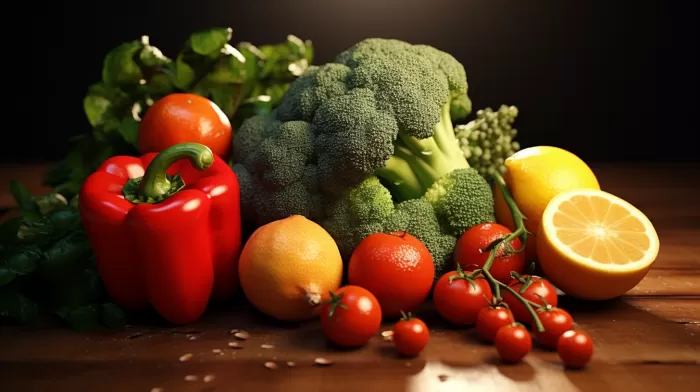Millions of people understand the importance of increasing vitamin C intake for a stronger immune system. But there’s another essential reason to get ample amounts of this vital nutrient—it can prevent cataracts and protect your vision as you age.
In the United States alone, over 20 million adults aged 40 and older are affected by cataracts. The American Academy of Ophthalmology states that by age 75, about half of us will have cataracts. Despite advancements in cataract removal surgery, cataracts remain the leading cause of blindness worldwide. This is why researchers are focusing on ways to slow the progression of this vision-thieving condition.
And guess what? Good nutrition has come to the rescue once again…
Sight-saving nutrient prevents cataracts
Scientists at King’s College London have been exploring how nutrients, the environment, and genetics affect cataract outcomes. Their most interesting study involved 1,000 pairs of mature female twins who were followed for ten years.
At the beginning of the study, the twins provided information to track their intake of vitamin C and other nutrients, including vitamins A, B, D, E, copper, manganese, and zinc—gained through the foods they ate, not supplements. At age 60, doctors measured the opacity of their lenses to determine cataract progression.
After ten years, the researchers were able to follow up with 324 sets of the twins. They discovered that women who had a higher consumption of vitamin C-rich foods had a 33 percent risk reduction of cataract progression.
This is quite an impressive statistic, considering they obtained their vitamin C through the foods they ate. Consuming five varied servings of fruits and vegetables daily—like an orange or orange juice, red peppers, kiwi, broccoli, or Brussels sprouts—can supply a moderate intake of about 200 mg of vitamin C. That’s just the right amount, as your body excretes excess vitamin C through urination. That’s also why you don’t need to supplement if you make sure to eat vitamin C-rich foods. But if your diet isn’t as mindful, you should definitely consider it.
How does vitamin C benefit our eyes?
You might be wondering how vitamin C helps slow the progression of cataracts. The answer likely lies in its exceptional antioxidant power.
The fluid inside the eye is usually high in vitamin C. This works to prevent oxidation that clouds the lens. Therefore, more vitamin C in your diet may increase the amount found in the fluid surrounding the lenses in your eyes, protecting and preserving your vision.
The importance of high-quality nutrition
While this article has highlighted the importance of vitamin C, it’s important to remember that following a balanced, high-quality diet is crucial for overall eye health.
Essential nutrients for eye health include vitamins A, C, and E, and the minerals zinc and copper. Omega-3 fatty acids can help reduce symptoms of dry eyes and may help avoid age-related macular degeneration. Lutein and zeaxanthin, found in green leafy vegetables, can lower the risk of cataracts and macular degeneration.
If your diet doesn’t always provide these nutrients, supplementation can be a powerful ally in maintaining good vision.
A healthy lifestyle for healthy eyes
Simple lifestyle changes can also greatly impact eye health. Maintaining a healthy weight reduces the risk of obesity-related diseases like diabetes, a leading cause of blindness in adults. Physical exercise also minimizes the risk of age-related macular degeneration.
Another important action is wearing sunglasses that block out 99 to 100 percent of UVA and UVB radiation, protecting your eyes from the sun’s harmful rays.
In conclusion, by consuming enough vitamin C and maintaining a healthy lifestyle, you are actively preserving your vision and preventing the development of cataracts. Now, go eat an orange and put on those sunglasses!



